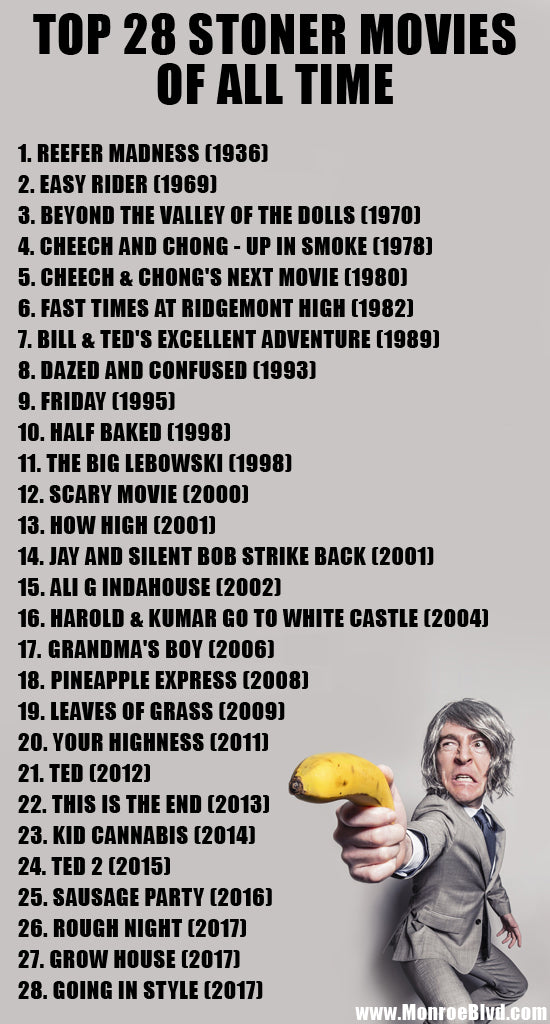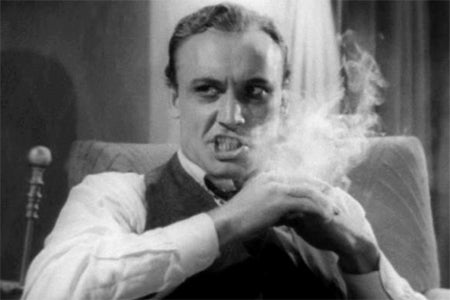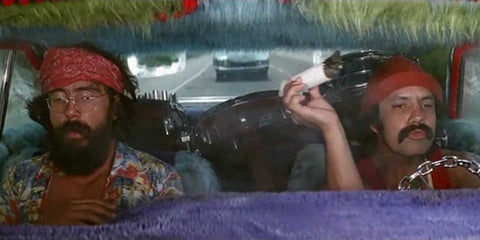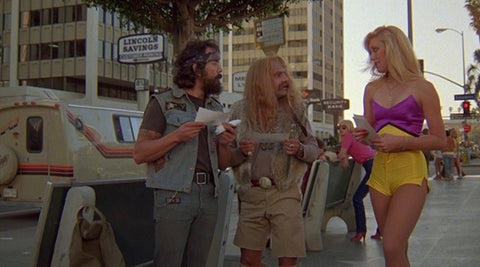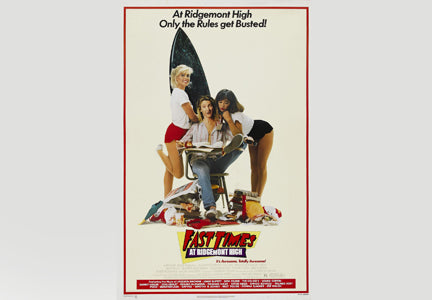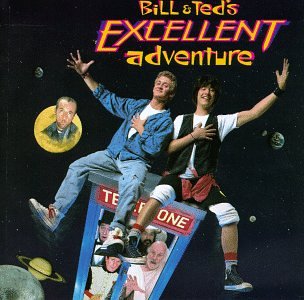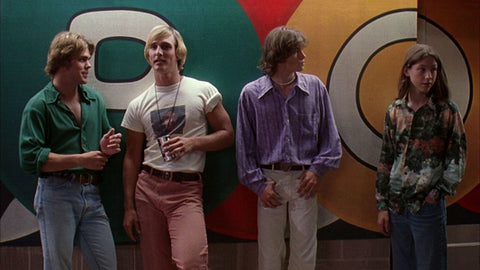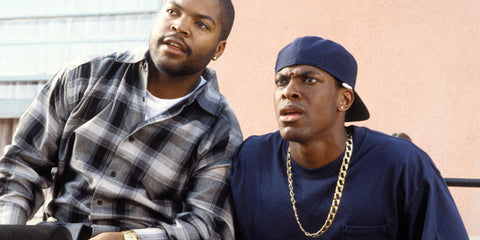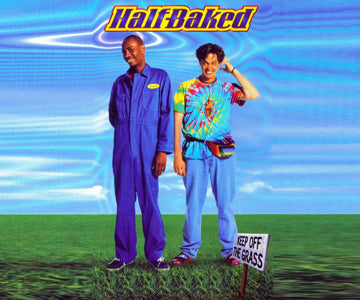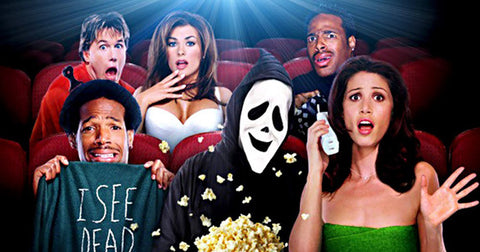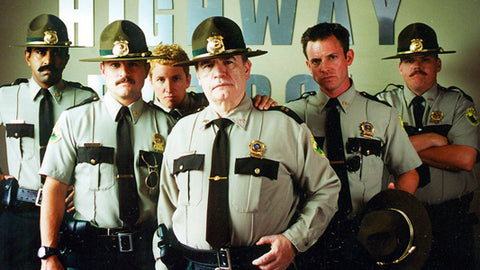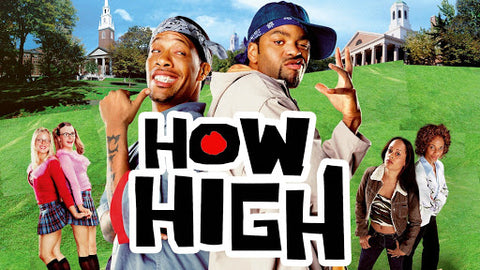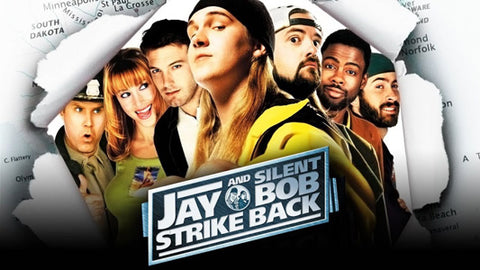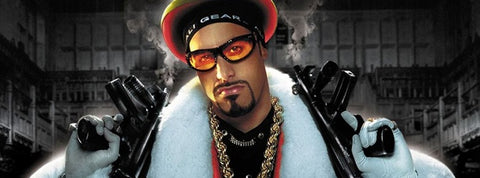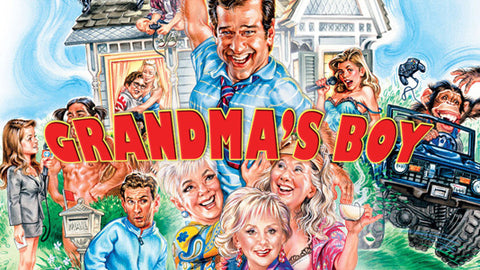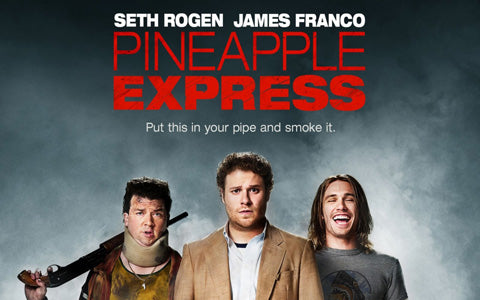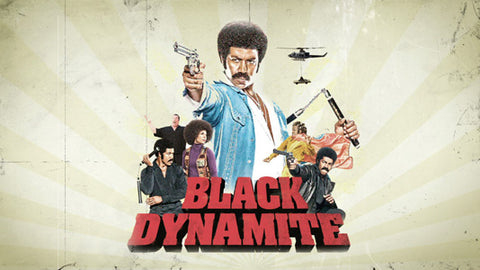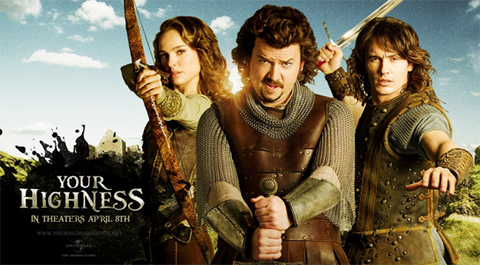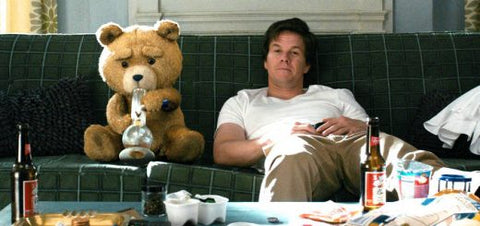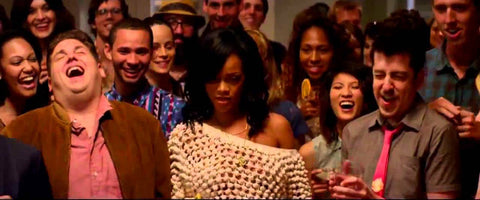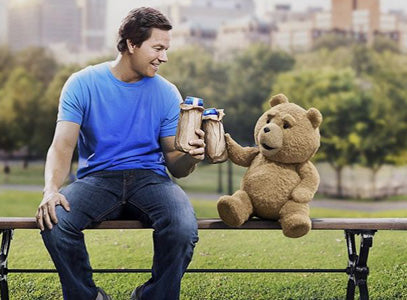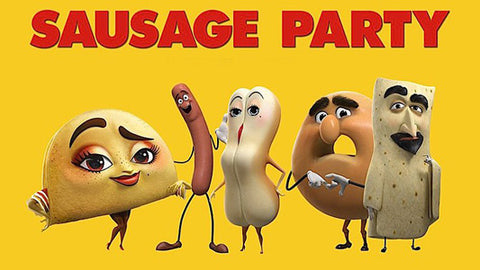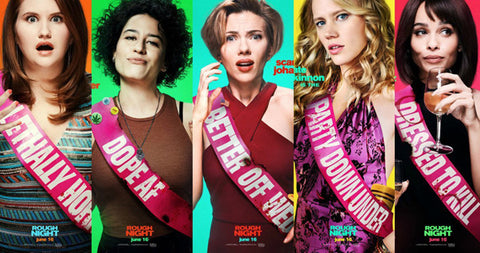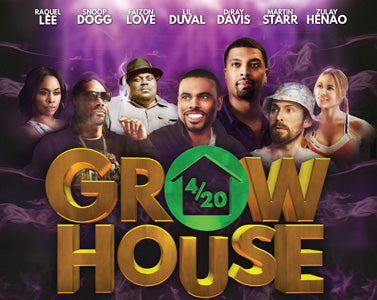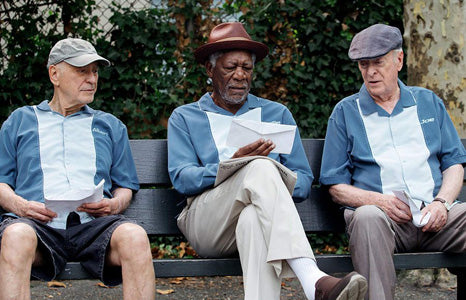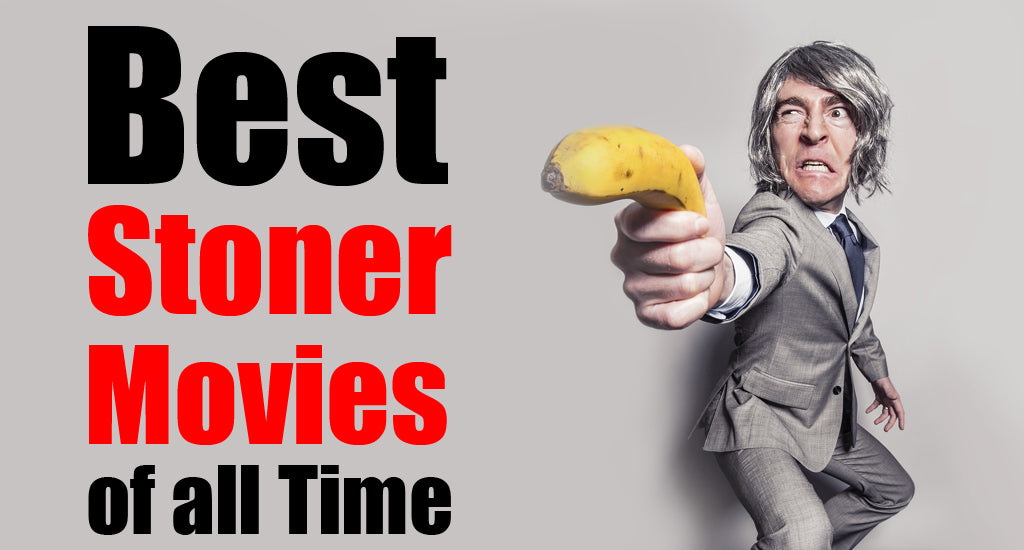
Best Stoner Movies of all times - 2024
Top Stoners Movies of All Time - 2024
Have you ever asked yourself "what's the top weed-themed films to watch?" - I certainly have. Every Sunday afternoon, I wind up expending an excessive amount of time scouring Netflix, HBO Go, and Hulu for the optimal stoner movie.
So as a rule of thumb, don't get high before finding an activity to do or a movie to watch!!
Related article: Best Stoner Comedy TV shows of all time
Why we call this list a "stoner movies" list
Stoner movies, a unique film genre, have evolved from early fear-inducing portrayals like "Reefer Madness" (1936) to more modern, humor-laden representations. These films often feature marijuana-centric storylines and characters, blending comedic elements with visually appealing imagery. This genre not only entertains but also reflects shifting societal attitudes towards cannabis. Recent studies challenge the stereotypical "lazy stoner" image, showing no significant motivational or pleasure-seeking differences between regular cannabis users and non-users.
As cultural perspectives continue to shift, stoner movies contribute to normalizing and diversifying cannabis representations, moving away from clichéd depictions towards more nuanced character portrayals where marijuana use is an aspect of their broader identities.
Related article: Marijuana for productivity - smoking weed and being productive - 5 Top Tips
What is the greatest stoner movie ever?
No one will be able to answer this question for you but yourself. Some people like watching funny movies, others like horror or even twisted and trippy ones.
Whether you choose to watch them sober or while enjoying cannabis, these TV shows are guaranteed to provide an enjoyable experience. And for those interested in buying cannabis-related products like weed vapes, they should check out the Yocan store.
Those stoner movies are great to watch whether you're high or not, better high though. Bring your bong next to you, some munchies (preferably healthy munchies, and enjoy the ride.
With no further ado, There are our stoner movies 2024 list that you don't wanna miss. Listed chronologically from the earliest stoner movie of all times:
Reefer Madness (1936)
Stars: Dorothy Short, Kenneth Craig, Lillian Miles
"Reefer Madness" (1936), initially titled "Tell Your Children," is an infamous propaganda film, dramatizing the supposed dangers of marijuana use. It portrays a series of exaggerated and melodramatic events following teenagers' exposure to cannabis. These events include hit-and-run accidents, manslaughter, hysteria, and even a tragic descent into madness leading to the institutionalization of a character. The film concludes with a direct appeal to the audience about the perils of marijuana, emphasizing the need for parental vigilance.
Originally produced by a church group as a morality tale, the film was later acquired by exploitation filmmaker Dwain Esper, who added sensational elements to it. It became a part of the exploitation cinema genre, reflecting the social anxieties and anti-cannabis sentiments prevalent in the 1930s. The film's exaggerated portrayal of marijuana's effects mirrored the public hysteria during the time, which was heightened by the Marihuana Tax Act of 1937, criminalizing the drug.
Ironically, "Reefer Madness" gained cult classic status in the 1970s, particularly among advocates for marijuana legalization. It was rediscovered and promoted as a comedic piece, indicative of the exaggerated anti-marijuana propaganda of its time. This shift in perception reflects the evolving societal attitudes towards marijuana, transitioning from the initial panic to a more humorous, ironic appreciation of the film's over-the-top portrayal of cannabis use.
Check the trailer here.
Easy Rider (1969)
Stars: Peter Fonda, Dennis Hopper, Jack Nicholson
"Easy Rider" (1969) is a landmark film that captures the essence of 1960s counterculture through the journey of Wyatt and Billy, two bikers who embark on a road trip across America. Fueled by the profits of a cocaine deal in Los Angeles, they head towards New Orleans for the Mardi Gras festival, carrying their earnings in a plastic tube inside a Stars & Stripes-painted fuel tank.
The film is deeply embedded in the era's themes of freedom, the hippie movement, and alternative lifestyles, and it doesn't shy away from portraying drug use. This is epitomized in a memorable scene where the characters introduce marijuana to George Hanson, a lawyer they meet during their journey. The portrayal of marijuana use in the film aligns with the 1960s counterculture's embrace of cannabis as a symbol of rebellion against mainstream societal norms.
As Wyatt and Billy travel, they encounter various characters who reflect the diversity and tensions of the time. The movie vividly portrays the clash between the freedom-seeking spirit of the protagonists and the conventional values of the society they move through. This clash ultimately leads to a tragic conclusion, highlighting the stark realities faced by those who challenged the status quo during that era.
"Easy Rider" remains a significant film, not just for its storytelling but also for its representation of the counterculture movement and its exploration of themes like freedom versus assimilation, and the contrasting lifestyles of nature and city life.
Check the trailer here.
Beyond the Valley of the Dolls (1970)
Stars: Dolly Read, Cynthia Myers, Marcia McBroom
"Beyond the Valley of the Dolls" (1970) is a film that delves into the world of an all-female rock band, The Carrie Nations, as they navigate the tumultuous Hollywood scene. This satirical melodrama, written by Roger Ebert, captures the essence of the era's counterculture, showcasing a blend of sex, drugs, and rock 'n' roll.
The film portrays the band's rise to fame amidst a backdrop of constant touring and drug use. It features scenes that encapsulate the psychedelic lifestyle of the period, including a party fueled by psychedelics. The characters in the film, while pursuing their dreams in the music industry, engage in various forms of substance use, reflecting the prevalent attitudes towards drugs during that time.
"Beyond the Valley of the Dolls" is noted for its over-the-top representation of the late 60s lifestyle, combining elements of drama, music, and satire. It stands out as a piece that, while rooted in its time, offers a wild and exaggerated depiction of the societal and cultural dynamics of the era, especially regarding the use and impact of drugs like marijuana within the youth and entertainment culture.
Check the trailer here.
Cheech and Chong - Up in Smoke (1978)
Stars: Cheech Marin, Tommy Chong, Strother Martin
"Cheech and Chong's Up in Smoke" (1978) is a cornerstone in stoner comedy, chronicling the hilariously haphazard journey of two marijuana enthusiasts, Cheech and Chong. The film humorously captures their escapade of inadvertently smuggling a van made of marijuana from Mexico to Los Angeles, while comically eluding law enforcement. This movie not only presents a series of amusing incidents involving the duo but also comments on the cultural and social perceptions of marijuana use at the time.
A key aspect of the film is its representation of marijuana culture in the late 1970s. Cheech and Chong, through their characters and comedy, broke down stereotypes, particularly regarding the depiction of Mexicans and hippies in American culture. They presented these groups in a more humanized and relatable light, contrasting the typical caricatures prevalent in media. Their comedy was not just humorous but also subtly political, reflecting and influencing the cultural attitudes towards marijuana.
Moreover, the film's production and release were a significant achievement during that era. Despite the challenges in getting a film focused on marijuana made and distributed, it became a massive success, resonating with audiences and becoming a cult classic. The film's portrayal of marijuana use was a departure from the alarmist tone of earlier representations, like "Reefer Madness," offering a more relaxed and humorous perspective that aligned with the changing societal views on cannabis.
Check the trailer here.
Cheech & Chong's Next Movie (1980)
Stars: Cheech Marin, Tommy Chong, Evelyn Guerrero
"Cheech & Chong's Next Movie" (1980) continues the comedic exploration of marijuana culture established by its predecessors. In this sequel, Cheech faces challenges like unemployment and romantic interests, while his day spirals into chaos with the arrival of his cousin Red and Chong. The trio’s wild adventure through Hollywood is amplified by their encounters with a bag of cannabis, leading to humorous situations and interactions with a variety of eccentric characters, including Pee Wee Herman and even some quirky aliens.
This film, like the first, effectively uses marijuana as a central theme to drive its comedy. The escapades of Cheech and Chong provide a humorous lens through which the film comments on marijuana use and the societal attitudes towards it during that era. The movie's style of humor and its portrayal of cannabis culture have contributed to making it a memorable part of the stoner comedy genre, resonating with audiences who appreciate its blend of humor and absurdity.
Check the trailer here.
Fast Times at Ridgemont High (1982)
Stars: Sean Penn, Jennifer Jason Leigh, Judge Reinhold
"Fast Times at Ridgemont High" (1982) is a vivid portrayal of teenage life in Southern California, combining humor, heart, and a touch of rebellion. This film became a hallmark of the coming-of-age genre, not only for its exploration of young love and identity but also for its memorable depiction of marijuana culture.
Central to the film is Jeff Spicoli, a perpetually stoned surfer, whose carefree lifestyle and regular marijuana use put him at odds with his strict history teacher, Mr. Hand. Spicoli's character embodies the laid-back, irreverent attitude towards marijuana typical of the era's surf culture. His interactions with Mr. Hand, who is convinced that all the students are on drugs, provide both comic relief and a commentary on the generational divide in attitudes towards marijuana.
While "Fast Times at Ridgemont High" delves into various aspects of teenage life, its candid representation of marijuana use stands out. The film reflects the growing normalization of cannabis in popular culture during the early 1980s, moving away from the extreme portrayals of earlier decades. It captures the shift in societal attitudes, where marijuana use, particularly among the youth, began to be viewed with a mix of humor and acceptance, rather than fear and condemnation.
This portrayal marked a significant moment in the depiction of marijuana in film, contributing to a broader conversation about cannabis in American society. The film, with its blend of comedy, drama, and realistic depiction of teenage experiences, continues to resonate with audiences, making it a classic in the genre.
Check the trailer here.
Bill & Ted's Excellent Adventure (1989)
Stars: Keanu Reeves, Alex Winter, George Carlin
"Bill & Ted's Excellent Adventure" (1989) is a sci-fi comedy that became a cult classic, depicting the humorous escapades of two high school slackers, Bill S. Preston, Esq. and Ted "Theodore" Logan. Set in San Dimas, California, the duo's quest to form a rock band, "Wyld Stallyns," is jeopardized by their potential failure in high school. The movie ingeniously weaves time travel into its narrative as Rufus, a man from the future, aids them in completing a critical history report by bringing key historical figures to their present. This unusual approach to their school project is pivotal for keeping them together and inadvertently for the salvation of the future.
Despite popular belief, the film doesn't have explicit marijuana references. The screenplay, conceived from a college comedy routine, originally depicted the characters as younger and more marginalized teens, distinct from the somewhat cooler personas brought to life by Alex Winter and Keanu Reeves. The initial script had a different direction with more radical time-travel adventures, including a plot with a van reminiscent of the "Back to the Future" DeLorean, which was later changed to a phone booth to avoid similarities.
Check the trailer here.
Dazed and Confused (1993)
Stars: Jason London, Wiley Wiggins, Matthew McConaughey
"Dazed and Confused," a 1993 film set in 1976, captures the last day of high school in Texas, blending the journey of various groups such as stoners, jocks, and geeks. The film centers around Randall Floyd, a star athlete who enjoys smoking weed, creating a personal conflict when he's asked to sign a "no drugs" pledge by his football coach. This theme highlights the contrast between Floyd's sporting commitments and his recreational choices.
Throughout the film, marijuana use is portrayed in a casual, almost normative light, reflecting the era's laid-back attitude towards cannabis. It's a pivotal element in depicting the social dynamics and individual identities of the characters. The iconic quote from David Wooderson, played by Matthew McConaughey – "It’d be a lot cooler if you did" in response to not having a joint – has become synonymous with the film's relaxed attitude towards marijuana use.
"Dazed and Confused" delves into the experiences of teenagers, including first-time marijuana use and social interactions revolving around it. The film captures the essence of being a teenager in the '70s, where marijuana was a common feature in the backdrop of youth culture and social gatherings.
Check the trailer here.
Friday (1995)
Stars: Ice Cube, Chris Tucker, Nia Long
"Friday," a 1995 classic comedy, follows the story of Craig Jones, portrayed by Ice Cube, who finds himself unemployed and navigating a day filled with unexpected events. Alongside his friend Smokey, played by Chris Tucker, Craig's day spirals into a series of misadventures. Smokey, known for his marijuana consumption, faces a predicament as he prefers using his cannabis stock rather than selling it. This habit lands him in trouble with Big Worm, his supplier, who insists on compensation.
The movie cleverly uses marijuana as a central theme to drive its plot and humor. It portrays the cannabis culture of the mid-90s, highlighting the casual and sometimes problematic use of marijuana within their community. As Craig and Smokey grapple with their day, they also encounter other neighborhood characters like Deebo, the intimidating bully, and Craig's ex-girlfriend Joi, known for her jealousy. Amidst these challenges, Craig also discovers a romantic interest in Debbie, adding a twist to his already eventful day. "Friday" subtly reflects on the social and personal implications of marijuana use, blending comedy with a touch of social commentary.
Check the trailer here.
Half Baked (1998)
Stars: Dave Chappelle, Guillermo Díaz, Jim Breuer
"Half Baked" (1998) is a stoner comedy that humorously delves into the adventures of a group of friends in New York City. The plot kicks off with Kenny accidentally killing a police horse, leading to his arrest and a hefty bail amount. In a bid to free Kenny, his friends, including Thurgood who works at a pharmaceutical lab, decide to sell marijuana. Their venture leads them to cross paths with a famous rapper and a rival dealer, adding layers of comedic conflict to the story.
Thurgood's pursuit of a relationship with Mary Jane, who is ironically against marijuana use, adds a romantic subplot. The movie creatively uses marijuana references to craft a narrative that's both a humorous take on cannabis culture and a commentary on the social dynamics surrounding its use. This blend of comedy and social observation has made "Half Baked" a memorable film in the stoner genre.
Check the trailer here.
The Big Lebowski (1998)
Stars: Jeff Bridges, John Goodman, Julianne Moore
"The Big Lebowski" (1998) is a cult classic that intertwines elements of comedy, mystery, and a laid-back perspective on life, all through the lens of Jeffrey "The Dude" Lebowski. Mistaken for a wealthy namesake, The Dude, an avid bowler and cannabis enthusiast, finds himself in a complex plot involving a soiled rug, which he seeks to replace. His journey, aided by his bowling partner Walter, a Vietnam Vet with a volatile temper, takes him through a series of misadventures involving various eccentric characters, including porn tycoons and nihilists.
The film subtly uses marijuana as a backdrop to The Dude's character, emphasizing his relaxed, carefree approach in a world of chaos and confusion. This iconic film is renowned for its unique storytelling and its portrayal of cannabis as part of The Dude's laid-back lifestyle.
Check the trailer here.
Scary Movie (2000)
Stars: Anna Faris, Jon Abrahams, Marlon Wayans
"Scary Movie" (2000) is a comedy that parodies the horror, slasher, and mystery genres. The film revolves around Cindy Campbell and her friends, who become entangled in a series of bizarre and frightening events, including being pursued by a masked killer.
This movie cleverly incorporates and satirizes many elements of popular horror films, including the use of marijuana, often depicted in teen horror movies as a trope associated with certain characters. By doing so, "Scary Movie" pokes fun at the clichés and predictable plot lines commonly found in horror films, using marijuana references as part of its humorous critique.
Check the trailer here.
Super Troopers (2001)
Stars: Jay Chandrasekhar, Kevin Heffernan, André Vippolis
"Super Troopers" (2001) is a comedic take on the lives of five Vermont State Troopers. Known for their playful pranks, these troopers are suddenly thrust into action when budget cuts threaten their station. They tackle a serious case involving a dead body and a suspected drug ring, adding a layer of urgency to their typically lighthearted antics.
The film uses humor to explore themes of responsibility and camaraderie in law enforcement, with marijuana references serving as comedic elements that contrast with their roles as enforcers of the law. This juxtaposition highlights the absurdity and irony in their situations, making "Super Troopers" a unique blend of comedy and action.
Check the trailer here.
How High (2001)
Stars: Method Man, Redman, Obba Babatundé
"How High" (2001) is a film about two friends, Silas and Jamal, who use a magical substance to ace their college entrance exams and get into Harvard. At Harvard, they find themselves in a world vastly different from their own, among the elite academic crowd. The movie humorously explores their adventures as they adjust to this new environment.
A key part of the plot is their reliance on this supernatural smoke, which symbolizes their unconventional approach to challenges. As they run out of it, the story shifts to focus on their ability to adapt and succeed through their own skills and the strength of their friendship. The film uses marijuana references to comment on creativity, resourcefulness, and the breaking of stereotypes in a prestigious academic setting.
Check the trailer here.
Jay and Silent Bob Strike Back (2001)
Stars: Jason Mewes, Kevin Smith, Ben Affleck
"Jay and Silent Bob Strike Back" (2001) is a film about two friends, Jay and Silent Bob, who embark on a quest to Hollywood. Their journey is sparked by a restraining order that disrupts their usual activities and the discovery that they're the inspiration for characters in a soon-to-be-made Hollywood film. Determined to claim what they believe is rightfully theirs and to stop the negative portrayal of themselves online, they set out on a comedic adventure.
The movie uses marijuana references as a tool to both define the characters and drive the plot, showcasing their lifestyle and perspectives in contrast to the Hollywood setting they find themselves in. This narrative approach creates a humorous critique of the entertainment industry and online culture.
Check the trailer here.
Ali G Indahouse (2002)
Stars: Sacha Baron Cohen, Emilio Rivera, Gina La Pian
"Ali G Indahouse" (2002) features the character Ali G, a comical and unconventional figure who unexpectedly becomes involved in a political scheme to overthrow the Prime Minister of the United Kingdom. The film humorously portrays Ali G's rise in popularity, as he is seen by the British public as a symbol of authenticity and freshness, inadvertently boosting the Prime Minister's popularity instead.
Through its narrative and characters, the film satirizes political processes and societal perceptions, using marijuana references to underscore Ali G's nonconformist and laid-back attitude. This approach offers a light-hearted critique of political and cultural norms.
Check the trailer here.
Harold & Kumar Go to White Castle (2004)
Stars: John Cho, Kal Penn, Ethan Embry
"Harold & Kumar Go to White Castle" (2004) is a comedic journey of Harold Lee and Kumar Patel, sparked by their craving for White Castle hamburgers after an appetite-stimulating session. Their quest is filled with unexpected challenges, including encounters with a raccoon, a biased police officer, and an eccentric Neil Patrick Harris.
The film uses marijuana not just for humor but also as a catalyst for the plot, reflecting on the quirks and adventures that can arise from such a simple mission. This narrative cleverly combines the elements of a road trip adventure with a lighthearted exploration of friendship, cravings, and the unpredictability of life.
Check the trailer here.
Grandma's Boy (2006)
Stars: Allen Covert, Linda Cardellini, Shirley Jones
"Grandma's Boy" (2006) humorously explores the life of Alex, a 35-year-old video game tester, who ends up living with his grandmother and her roommates due to his roommate's irresponsible spending. To maintain his reputation among his younger colleagues, Alex creatively describes his new living situation as staying with "a truly attractive woman and her two wild roommates."
The movie cleverly uses this scenario to play on the contrast between youth culture, including marijuana use, and the elderly, adding a unique twist to the usual stoner comedy theme. This juxtaposition offers a humorous perspective on aging, responsibility, and the unexpected turns in life.
Check the trailer here.
Pineapple Express (2008)
Stars: Seth Rogen, James Franco, Gary Cole
"Pineapple Express" (2008) combines action and comedy to tell the story of Dale Denton and his drug dealer, Saul Silver. Their adventure starts with Dale witnessing a murder and inadvertently leaving behind a rare strain of marijuana known as Pineapple Express. This unique strain becomes the key to tracking them, putting their lives at risk from a hit squad.
The film uses the rare cannabis strain as a central plot device, highlighting the unintended consequences and comedic escapades that ensue from their attempts to evade capture. This narrative approach blends humor with a commentary on the unpredictability and absurdity of situations involving marijuana.
Check the trailer here.
Black Dynamite (2009)
Stars: Michael Jai White, Arsenio Hall, Tommy Davidson
"Black Dynamite," a film released in 2009, revives the spirit of 1970s Blaxploitation cinema with a satirical twist. The story centers on the character Black Dynamite, who seeks revenge against 'The Man' for the murder of his brother. This quest leads him to confront broader societal issues, such as the introduction of heroin into orphanages and the distribution of substandard malt liquor in the ghetto.
While the film primarily focuses on these aspects rather than marijuana, its portrayal of drug themes plays a crucial role in advancing the plot and delivering a critique of the era. The movie skillfully balances action and comedy, offering a humorous yet poignant reflection on the stereotypes and social challenges of the 1970s.
Check the trailer here.
Your Highness (2011)
Stars: Danny McBride, Natalie Portman, James Franco
"Your Highness" (2011) humorously subverts the classic medieval fantasy genre. It follows Thadeous, played by Danny McBride, the less accomplished brother of the heroic Prince Fabious, portrayed by James Franco. Unlike traditional heroic tales, Thadeous is reluctant and less inclined towards heroic feats.
The film weaves in marijuana references, using them as a metaphor for Thadeous's laid-back and unconventional approach in contrast to his brother's valiant endeavors. These references add a comedic element, highlighting the disparities between the brothers' attitudes and approaches to their quest. The movie uses this contrast to playfully critique traditional hero narratives and the expectations placed on individuals in positions of power or lineage.
Check the trailer here.
Ted (2012)
Stars: Mark Wahlberg, Mila Kunis, Seth MacFarlane
"Ted" (2012) tells the story of John and his teddy bear, Ted, who comes to life through a childhood wish. As they grow up together, John is faced with a difficult choice between maintaining his relationship with his girlfriend or his friendship with Ted. The movie humorously explores the challenges of adulthood, with Ted embodying a carefree and often inappropriate lifestyle, which includes marijuana use.
This use of marijuana references serves as a symbol for clinging to the past and the struggle to balance maturity with youthful habits. The film blends comedy with a deeper message about growing up and the complexities of maintaining childhood friendships in adult life.
Check the trailer here.
Mac & Devin Go to High School (2012)
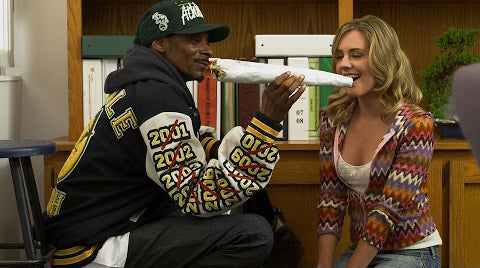
Stars: Snoop Dogg, Wiz Khalifa, Mike Epps
"Mac & Devin Go to High School" (2012) is a comedic film that centers on two high school students with contrasting goals. One is an overachieving student working on his graduation speech, while the other, having been in high school for 15 years, represents the more laid-back, cannabis-influenced lifestyle.
The movie uses marijuana references to highlight the contrast between these two characters, exploring themes of responsibility, ambition, and the high school experience. It's a blend of humor and social commentary, reflecting on the different paths and choices faced by students in their school years.
Check the trailer here.
This Is the End (2013)
Stars: James Franco, Jonah Hill, Seth Rogen
"This Is the End" (2013) is a comedic take on the Biblical Apocalypse, where Jay Baruchel and Seth Rogen find themselves amidst unforeseen chaos during a housewarming party at James Franco's house in Los Angeles.
The movie blends humor with apocalyptic themes, using marijuana as a symbol of the characters' initial carefree and hedonistic lifestyle, which contrasts sharply with the sudden, serious turn of events. It explores themes of frivolity, shallowness, and survival, ultimately leading the characters to discover a possible escape route from their dire situation. The film uses its unique premise to humorously comment on celebrity culture and personal growth.
Check the trailer here.
Ted 2 (2015)
Stars: Mark Wahlberg, Seth MacFarlane, Amanda Seyfried
In "Ted 2" (2015), the story continues with Ted facing a new challenge: his marriage with Tami-Lynn is on the rocks, leading them to consider having a child to save their relationship. However, this decision sets off a series of events that result in Ted being declared property, stripping him of his civil rights.
The film uses this plot to explore themes of identity, legality, and what it means to be human, with marijuana references reflecting Ted's non-conventional, carefree lifestyle. These elements are juxtaposed against the serious legal battle Ted faces, offering a blend of humor and commentary on societal norms and legal definitions of personhood.
Check the trailer here.
Moonwalkers (2015)

Stars: Rupert Grint, Ron Perlman, Robert Sheehan
"Moonwalkers" (2015) is set in the 1960s and revolves around the conspiracy theory that the Apollo 11 moon landing was a hoax staged by the US government with the help of filmmaker Stanley Kubrick. The film, a blend of comedy and action, follows a CIA agent and a rock band manager in London as they team up for this elaborate deception.
While the movie doesn't primarily focus on marijuana, its inclusion reflects the counterculture of the 60s and adds a layer of humor to the storyline. The film uses this backdrop to create a narrative that is both entertaining and a commentary on conspiracy theories and government mistrust.
Check the trailer here.
Sausage Party (2016)
Stars: Seth Rogen, Kristen Wiig, Jonah Hill
Frank and Bun's journey to the great beyond turns into a wild adventure when they become stranded in Shopwell's Grocery Store. As Frank discovers the dark secrets of his existence as a sausage, he embarks on an epic quest to reveal the truth to his fellow products and revolt against their human owners. With tongue-in-cheek humour and an abundance of puns, this is one of the funniest movies on Netflix.
Check the trailer here.
Rough Night (2017)
Stars: Scarlett Johansson, Kate McKinnon, Zoë Kravitz
Five college peers reunite a decade later for a wild bachelorette party in Miami. Their celebration quickly turns disastrous when they unintentionally cause the death of a stripper. As they grapple with the aftermath, the friends are drawn closer amid the chaos.
Check the trailer here.
Grow House (2017)
Stars: Malcolm McDowell, Snoop Dogg, DeRay Davis
The number of medical marijuana dispensaries in California and across the United States has seen a meteoric rise in recent years, earning them comparison to the likes of Starbucks and McDonald's. Legalization efforts in numerous states have made cannabis more accessible than ever before. Hastening this movement, Pat (DeRay Davis - "EMPIRE," "21 Jump Street," "GI Joe") and Darius (Lil' Duval - "Scary Movie 5," "Meet the Blacks") aspire to help the medical marijuana cause and further their own fortune by cultivating marijuana and selling their crop. Though, the only problem is utilizing their experience as consumers to become successful cultivators.
Check the trailer here.
Going in Style (2017)
Stars: Michael Caine, Alan Arkin, Ann-Margret
A reimagining of Martin Brest's 1979 classic, starring George Burns, Art Carney, and Lee Strasberg. When three elderly retirees find themselves struggling financially, even resorting to consuming dog food, they decide it's high time for a change. But with no experience wielding firearms, these seniors attempt the unthinkable: a bank heist. A thought-provoking portrayal of aging in America and the struggles faced by those in dire circumstances.
Check the trailer here.
Assassination Nation (2018)

Stars: Odessa Young, Abra, Suki Waterhouse | See full cast & crew
After experiencing a data breach that revealed the secrets of Salem, a small town in the USA, four girls face a struggle for survival while trying to cope with the hack's effects.
Check the trailer here.
Super Troopers 2 (2018)
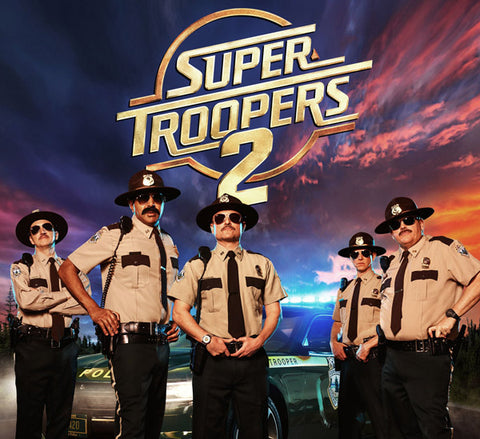
Stars: Jay Chandrasekhar, Kevin Heffernan, Steve Lemme
When a territorial disagreement appears between the United States and Canada, the Super Troopers are assigned to setup a Highway Patrol station in the disputed region.
Check the trailer here.
Cocaine Bear (2023)

Stars: Keri Russell, Alden Ehrenreich, O'Shea Jackson Jr.
This darkly humorous film finds a unique assemblage of law enforcement, criminals, tourists, and teenagers converging in a Georgia forest due to a 500-pound apex predator with a voracious appetite for cocaine having caused an uproar in search of more of the drug. The story is based on a true incident in 1985 involving a drug runner's plane crash and the bear that ate the cocaine.
Check the trailer here.
